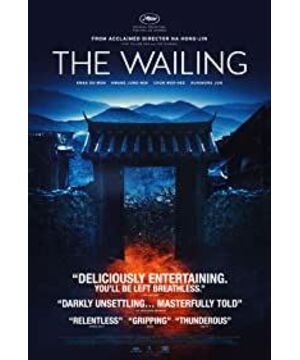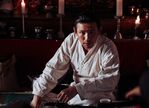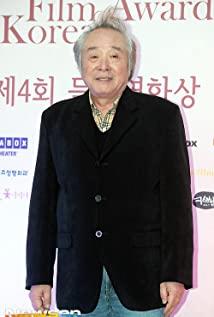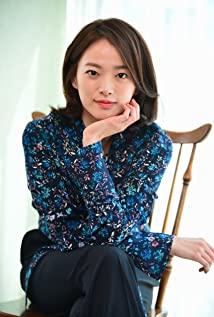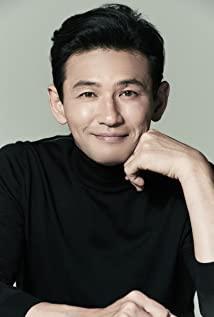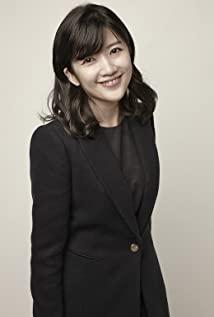no exaggeration to say that from the news of the finalization, "Cry" has become the most anticipated movie by many fans this year. The horrifying themes, the ghostly atmosphere and the overwhelming reputation accumulated by the director Luo Hongzhen in the first two feature films, accompanied by various whispers and early comments from Cannes, further deified the film.
However, I am afraid that no one can really "understand" "Cry".
Because in the director's own consciousness, he doesn't seem to want the film to present a complete and clear direction. In other words, this story has no truth, you see people as adults, you see ghosts as ghosts. Therefore, such movies are destined to lead to two diametrically opposed results: either, fans are inspired to inspire a lot of specious interpretations, or people completely abandon the pursuit of the truth of the plot and metaphors, and completely indulge in the suspense and strangeness created by the genre itself. Atmosphere.
The most high-quality part of "Cry" is a piece of shrine drum in Gucheng Mountain. The tense atmosphere of horror makes everyone fall into a maddening mystery, and it is all this that stabilizes the viewer. In this sense, in the expectation of more people, "The Cry" should be a thriller genre with a clearer social and psychological foundation-only in this way can it be in line with Luo Hongzhen's advanced history—— From "The Pursuer", which relies more purely on passionate pursuit and fighting, to the vast and fatalistic "Yellow Sea", it gradually transitions to a more profound, but not deviating from this established type of work.
However, it is clear that Luo Hongzhen went much further than the fans' expectations.
In "The Cry," he attempts to accommodate a series of root inquiries about religion, Eastern and Western civilizations, psychoanalysis, human torture, national inferior roots... and so on. Therefore, in this, we can see the stigmata that flashes through the palm of the mysterious Japanese; a bunch of dried seeds of snapdragon like a skull; the display of the weird details in the exorcism ceremony; and the bewitching of rumors. The temptation of humanity; the inherent exclusivity and irrational psychological foundation of human nature... If Luo Hongzhen chooses any of these directions to deepen, perhaps the movie will be much clearer, but now, they are mixed together. All this has produced a subtle chemical reaction, making "The Cry" an extremely rare collection of genres. He has made the horror and suspense a grand opera sense, but, inevitably, these complicated genres and flips interact with each other. Fight against each other, bite each other, and dissolve each other. After removing the superficial spectacle exhibition, you will find that everything is just a superficial pile of formalism. The ridicule of human nature and the awe of weird powers are basically inevitable. In terms of the sense of form and the shaping of the genre film body, Luo Hongzhen has reached the stage, but in the narrative of the connotation, "The Cry" is almost out of control. It allowed us to reach the peak of curious hunting as far as possible, and then everything was suspended.
A nightmare reality, or a nightmare that is too real. These are two ways to understand "The Cry".
You can explain everything that happened in Gucheng from the supernatural part, evil spirits and souls, destined death and retributive madness, but you can also reinterpret everything with hallucinations and hysteria: those contagious fears and in the true sense. After being spread word of mouth, it was mixed with tension and then entered the dream system. The boundary between illusion and reality in the mind was washed away, further affecting the mind. But obviously, Luo Hongzhen didn't want to say anything clearly, the ending he wanted to achieve was something chaotic and unclear. Or, to put it another way, he was originally very clear, but after adding too much flavoring, he forgot the original taste he wanted to make. "I didn't want to use a single line to tell this story in the film planning stage, but if there are too many lines, it will be difficult to put them together in the end." In a post-screening interview with critic Li Dongzhen, Luo Hong Zhen admits that.
Luo Hongzhen captured the hearts of the people at first because his feature film debut "The Chaser" was clean and neat. This stern and straightforward movie has no preset theme and pretentious meaning. It is a typical presentation of the narrative of the two heroes confrontation in the type of Korean crime: a pimp discovered by conscience, a psychopathic murderer, in pursuit, escape, and countermeasures, each other inspires sharper things. . Since then, Luo Hongzhen's habit of shooting, chasing, running and fighting has been imprinted in his works.
To some extent, the second work "Yellow Sea" is also about chasing and fleeing, hiding and finding-this kind of see-saw relationship not only exists between the amateur killer, target and snake head played by Ha Zhengyu, but also lies across Another kind of complicated identity relationship is between a depressed husband and a wife who has gone to work in South Korea without a word. The latter secret clue seems to be irrelevant, but in the end it subtly enhances the realm of the movie. It finally turned a suspenseful action film with body fluids splattered and bloody into a fable filled with fatal mist. The experience of survival at the bottom of those borders, people wandering in the gray area between the two countries in a certain age, now it seems that the passage of time is even more embarrassing. The hidden line in "Yellow Sea" tells unfathomable numerology like palm prints.
In the three years since the filming of "The Yellow Sea", Luo Hongzhen, who has received rave reviews, has been depressed. He felt that the post-production of his work was not rushed. Even if he made another version, he still failed to really let go of it. Therefore, when filming "The Cry", he always emphasized that before the production is completed, no matter what the file is. To some extent, this craftsmanship has moved many fans, so that they are willing to ignore the inferior parts of "The Cry".
The overly complex, profound and grand theme in "The Cry" inevitably produces a deterrent effect, so that fans can only look up, speculate, and then sigh inferior or embarrassed, but it is destined to seal up doubts and criticisms. It is undeniable that "The Cry" has a solid tone and an excellent performance. The bright and extinguished mountains and mists are impressive. Luo Hongzhen does have a strong ability to accumulate emotions and shape the atmosphere, but all this alone cannot conceal the spiritual connotation of collapse. If he really wants to explore deeper themes outside of the genre, as preset in The Cry, what he needs to rebuild is the ability to grasp those serious human themes. Compared with his proficient skills in creating atmospheres, his other leg has a sharp slope.
View more about The Wailing reviews


